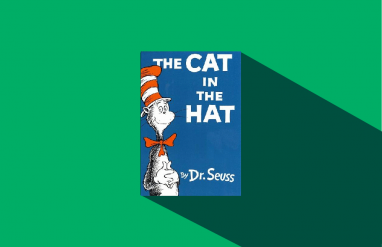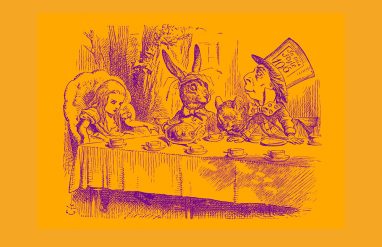What comes to your mind when you see or hear the word Dracula? Probably vampires, right? But what about ruthless Romanian royalty … or dragons?
It’s time for the story of Dracula—the word.
Where does the character Dracula come from?
We dress up as vampires on Halloween and watch dramas like True Blood thanks in large part to Irish author Bram Stoker, whose 1897 Gothic novel Dracula helped popularize vampire fantasy—and helped cement the undead, Transylvanian nobleman, Count Dracula, as the archetype of a vampire in the cultural imagination.
For the character—and name—Dracula, Stoker is believed to have been influenced by a not-so-friendly dude, Vlad the Impaler, who ruled in Wallachia (now a part of Romania) in the 1400s. It’s said that he oversaw the murder of tens of thousands of rivals, criminals, and other enemies. Take a stab at his preferred method of execution …
Where does the name Dracula come from?
Vlad the Impaler was also known as Vlad III Dracula. The name Dracula means “son of Dracul.” In the Romanian language today, dracul means “the devil”—drac is “devil,” ul is “the”—but it is derived from the Latin dracō, “dragon.” (Dragons have been historically associated with Satan, hence the evolution.)
Now, “son of Dracul” is a reference to Vlad’s father, who was a member of the Order of the Dragon, a Christian society of knights in the manner of Crusaders. The order chose as its patron saint, St. George, famed for his legendary slaying of a dragon.
WATCH: The Story Behind The Blood Drop Emoji
Where does the word dragon come from?
As you may have guessed, Latin’s dracō is the source of the English dragon, found in English by the 1200s and meaning “huge serpent” before it settled into its current form as the mythical, winged, fire-breathing reptile.
Latin’s dracō in turn comes from the Greek drákōn, a kind of serpent whose name may have originally meant “the sharp-sighted one.”
Some other interesting words are related to dragon, including:
- draconian, “extremely cruel”
- drake, not the singer or duck, but an archaic word for “dragon”
- dragoon, “a mounted infantryman armed with a short musket” but also a verb meaning “coerce”
- rankle, via French raoncler and draoncler, “to fester,” from draoncle, “sore,” from Latin’s dracunculus, “little dragon”
- tarragon, which traded Greek, Arabic, Roman, and French hands before entering English
On Dracula, we recommend pairing that tarragon with … some garlic.
Dying to get your blood pumping fast with some frightening literature? Look no further than these classic monsters lurking in your bookshelves.














